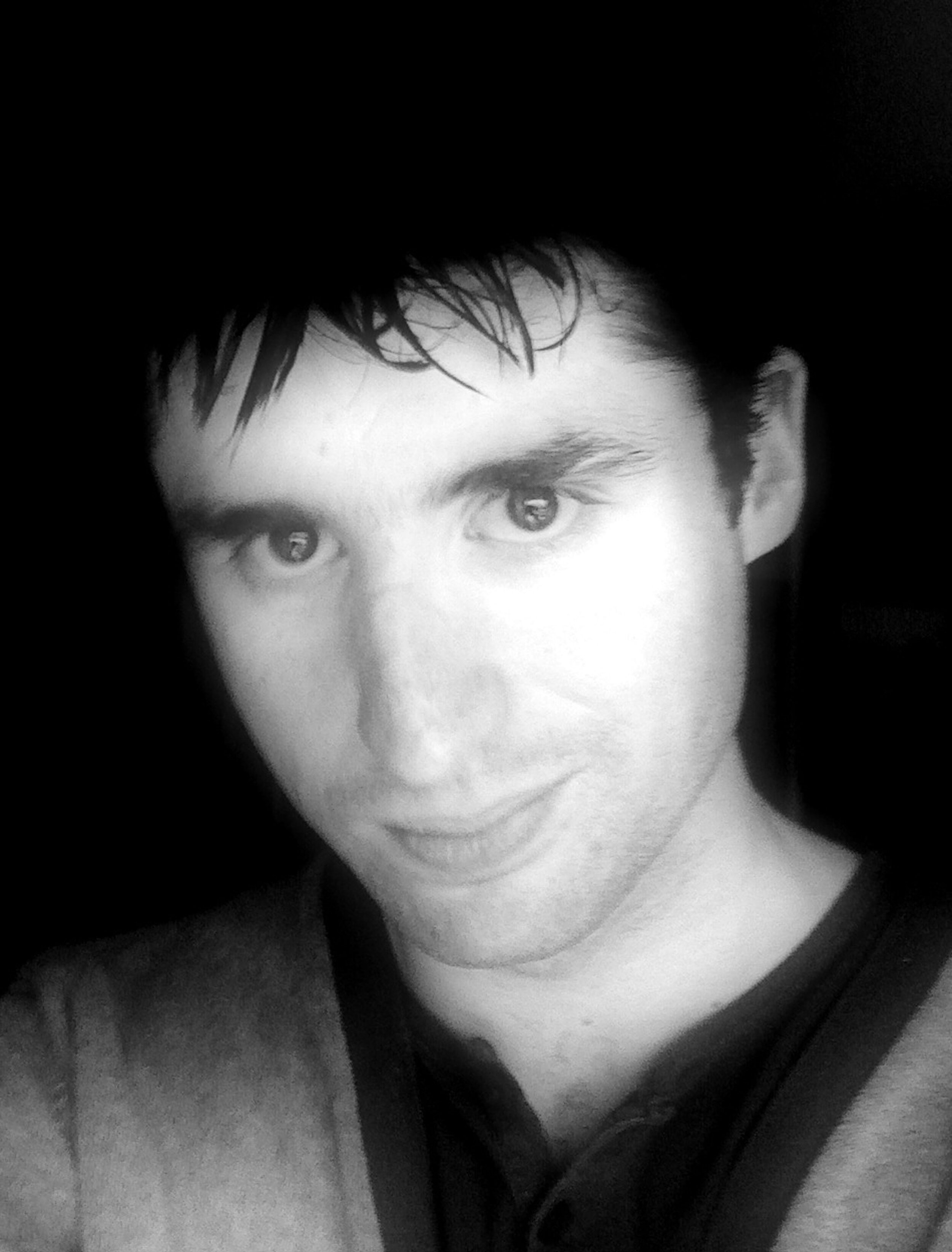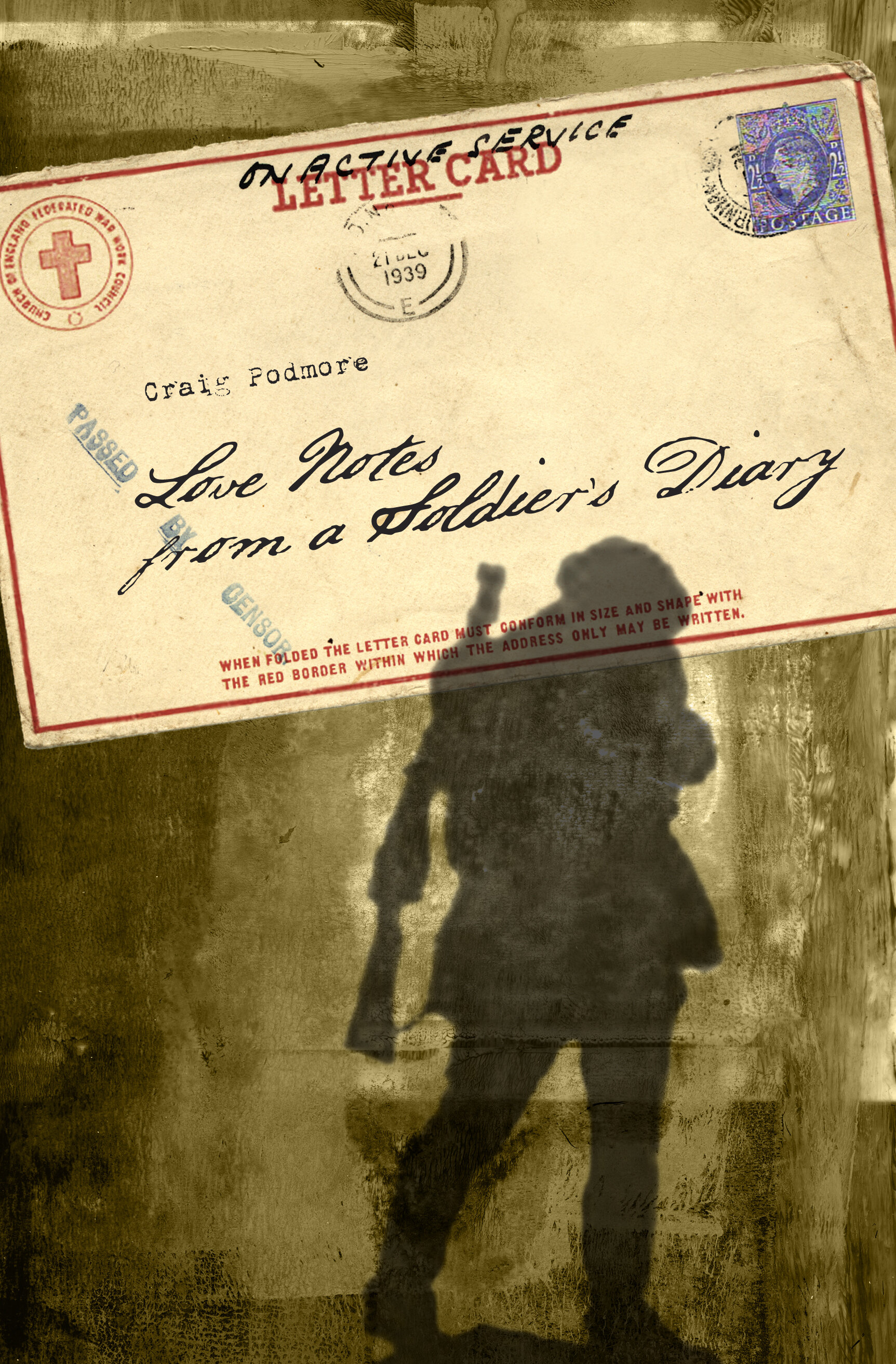Love Notes from a Soldier's Diary
Craig Podmore
About the Author
Craig Podmore is a writer, photographer, filmmaker and director from Manchester, UK. He is the author of I am a Gun and The Abattoir Heavens and The Holy Ghost. His work has appeared in various journals and e-zines including Gloom Cupboard, The Plebian Rag, The Scottish Poetry Review, Epic Rites, Ditch, Poetry, Danse Macabre, Calliope Nerve, Horror, Sleaze, Trash, Sein Und Worden, Sex and Murder Magazine, Gutter Eloquence and Fashion for Collapse..
ISBN 978-0-9832747-4-2
72 pages
$14.95
5.5" x 8.5" perfect bound, paper
Excerpt
A Lonely Soldier’s Scriptures
I
I’ve been helping the wounded.
Some of them are just soulless,
Disabled flesh of hopelessness.
The ululations of agonies,
Screaming for their Mothers,
Their wives
In pre-funereal ceremonies.
One said he could hear a violin:
She’s playing ‘Debussy’, my wife, she plays it well.
Only for I whom could see the innards of his skull;
He has a fragment of a second to live
But what he chooses to hear in his last
Sense of living is his wife playing her violin.
All I would want is to hear you breathe right now.
II
You once said that you heard Christ weeping.
Once.
I’ve never heard him.
Not a whimper,
Not once,
But
I’ve heard the devil laugh
Beyond this landscape of
War wounds, young men dying.
Although,
For when I hear you breathe
You are the light that
Replenishes all
Demons.
III
Meditatively, transcendently
I slept in a poppy field.
The sun blinking in the bouncing
Red petals, reaching for the sky.
Glimmers of you in between –
Just as warm as the sun.
The cries of crows,
The buzzing of bees,
Capturing, trying to seize
The divine delights of nature.
It’s like a painting of you.
The disposed, discordant piano
In the field my fine friends play.
The keys chant hides the gunfire nearby.
I sing within thought:
Lorna, I will be coming home to you.
IV
I nearly died today.
A bullet scathed the skin of my scalp.
It had pierced my cap, through your picture,
Complacently penetrating the centre
Of your heart.
I didn’t see any God,
Only you.
You are God to me.
V
My anatomy constructed like this war zone.
Bullet strewn, desolate and degraded
But the heart of it beats
And only for you.
You can hear it,
Always.
Reviews
“Craig Podmore's new book is a marvelous selection of poems in two parts. First a sequence on the theme of war and soldiers' experience of war, on their humanization through the process of dehumanization. The second part however is the core of the book for me, in that it is a depiction of a process dehumanization through the invidious humanizing ideology that has afflicted us from the beast in the west.
Yet vitality and life's intractable drive remain in “the abattoir of stubborn meat” and they remain in their purest and most concentrated form in the condemned man who requests the froth of violence for his last meal in “Death Row Consumerism” and smiles. The poems are like Genet's red rose of monstrous size and beauty discovered in the heart of the executed murderer. Get this book, these poems need to be read. Given the name of the press, one might note that these poems embody poiesis as the word is explicated in e.g. Heidegger's Introduction to Metaphysics, they do not thematize Being explicitly, but they disclose, they reveal the death camp logistics that has replaced the primitive Mitsein of the squaddy.
These poems are soldiers too, in the ancient polemos, the strife whereby phusis rips itself into the showing, but always leaving countless aspects of its being hidden. And they do not show by the Platonic mimesis that swallowed phusis, but they adumbrate what Sophocles described man as in The Antigone - to deinotaton, the most uncanny, at home nowhere, Dasein struggling for a mastery that orders its world but shatters against one thing, the ultimate, the irrevocable death. Praxis and techne are the necessary enslaving of Being, putting it to work, but poisesis responds to the desolate awareness of the absences and disorder, to the wars internal and the wars external that make us what we are. Poiesis is that which orients us as beings in the Being around us. This is a long-winded way of saying that these poems show our world raw like it is. Again, buy it.”
—David McLean, author of Cadaver's Dance and Hellbound
“Had Rilke made it to The Front Line he may very well have compiled a series of poems such as Craig Podmore offers us in his harrowing yet tender collection, Love Notes from a Soldier’s Diary. Podmore is no stranger to the themes of love, death, war (he does not tackle the minor issues), and here we have the double spectres of death and absent love - the ones that hollow us out yet make us feel desperately alive - set against the agony and futility of war. These are love poems in the truest sense: they are full and plaintive, beautiful and painful, providing a man with solace and hope where around him he sees only blood and brutality. These poems are the beautiful portrayal of a man’s struggle with his predicament and the necessity of a light, however distant. Even when the light seems to die his belief in it does not, for if it did, surely the trenches would be as adequate and timely a grave as any? The Other Journal Entries which make up the second section of the book, though perhaps less lyrical, are beautifully eloquent and carry the themes forward to a contemporary world where the spectres are Capitalism and Consumerism together with the apparently innate and tenacious of human concerns, War and Religion. This collection bowled me over. The love poems are exquisite and Podmore has crafted the collection with a raw delicacy and a shadowy pathos which glorifies nothing other than the purity and complexity of love. This is powerful, beautiful poetry which ought to be read at a time where poetry is swiftly becoming a series of prosaic, hacked sentences.”
—Gillian Prew, author of Disconnections



